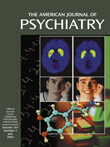The behavioral dynamics underlying HIV transmission remain a critically important topic as new cases of HIV infection continue to occur in the United States. In this book, Robert Klitzman and Ronald Bayer bring their expertise to a key element of these dynamics: the disclosure of health and serostatus by HIV-positive men and women. Writing from the perspective of ethics, moral philosophy, and mental health, Klitzman and Bayer provide an engaging consideration of the competing and sometimes contradictory values that influence disclosure decisions in the lives of HIV-positive adults. How, for example, do adults with HIV infection protect their privacy, avoid harm to others, optimize emotional support and coping, and interpret the sometimes ambiguous guidelines for “safer” sex when deciding whether to disclose their HIV status to intimate partners?
In posing these questions, the authors wisely let HIV-positive individuals speak for themselves. Klitzman, a psychiatrist, and Bayer, a medical ethicist and historian, draw on the responses of 77 participants in their study of serostatus disclosure decisions. The participants, most of whom are HIV-positive and who are heterogeneous in gender, race, and sexual orientation, were asked about their experiences disclosing HIV serostatus to partners, family members, friends, and colleagues; rationales for their decisions; and attitudes toward practices such as Tarasoff notifications and breaches of confidentiality by health care providers.
In discussing their participants’ stories, Klitzman and Bayer make an invaluable point regarding the importance of understanding disclosure decisions from perspectives beyond that of traditional mental health assessment. Intentions, beliefs about risk and responsibilities, and the social contexts in which intimacies occur are all key factors shaping disclosure decisions. Furthermore, we are reminded that these decisions affect not just sexual partners but also family members, close friends, and co-workers. In some instances, the latter disclosures are more difficult than conversations with sexual partners.
The heterogeneity of participants’ stories is an asset of this book, although the inclusion of too many excerpts detracts from the authors’ examination of moral philosophy and truth-telling as revealed in participants’ lives. Nonetheless, the concluding sections of this book provide a stimulating and deeply satisfying discussion of the tensions inherent in disclosure stories. Klitzman and Bayer argue that HIV disclosure is at its most interesting and vexing level a matter of what we define as good: individual autonomy as expressed in privacy, the ability to assume risk, and the freedom to make choices, as well as the proper role of the state and professions in protecting distinctions between public and private concerns. The authors raise the critical question of what we should do with knowledge of the psychological and moral wellsprings of intimate choices and, more specifically, what role the health care professions should play in helping HIV-positive persons to understand the moral and social significance of disclosure decisions.
The HIV epidemic may have lasted for more than 20 years, but the moral dilemmas in the lives of HIV-positive individuals that are illustrated and examined in this book remain a challenging and, at times, disturbing reality. As stated by the authors, the importance of understanding disclosure decisions will only increase as HIV accelerates in the developing world and as advances in medical genomics, closer to home, create new tensions between individual privacy rights and the needs of public and private health sectors. Readers concerned about these matters are advised to eavesdrop on the mortal secrets described in this book. The authors reveal that dealing with these secrets involves the necessary but seemingly impossible challenges of building trust and communicating with each other in an ever uncertain world.

